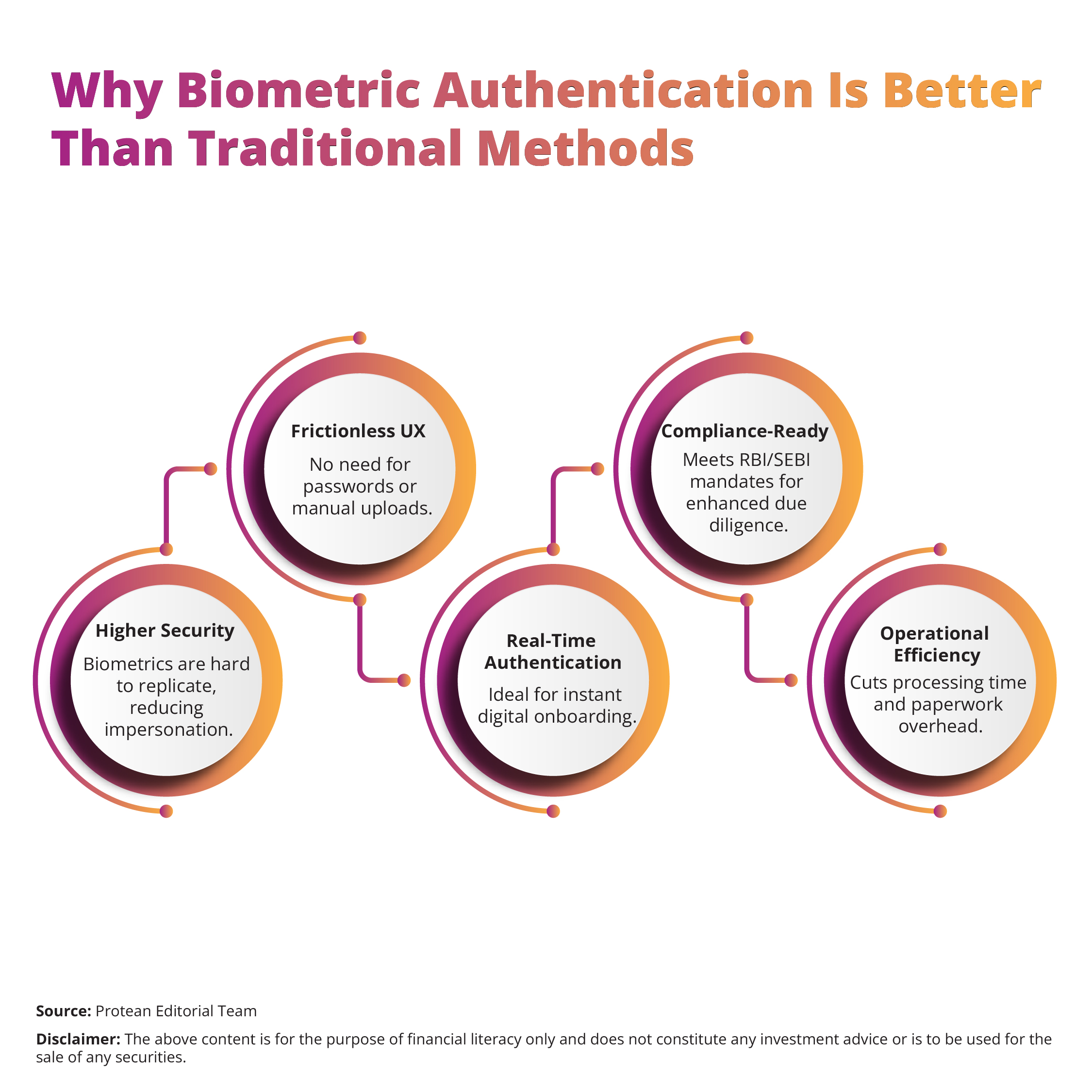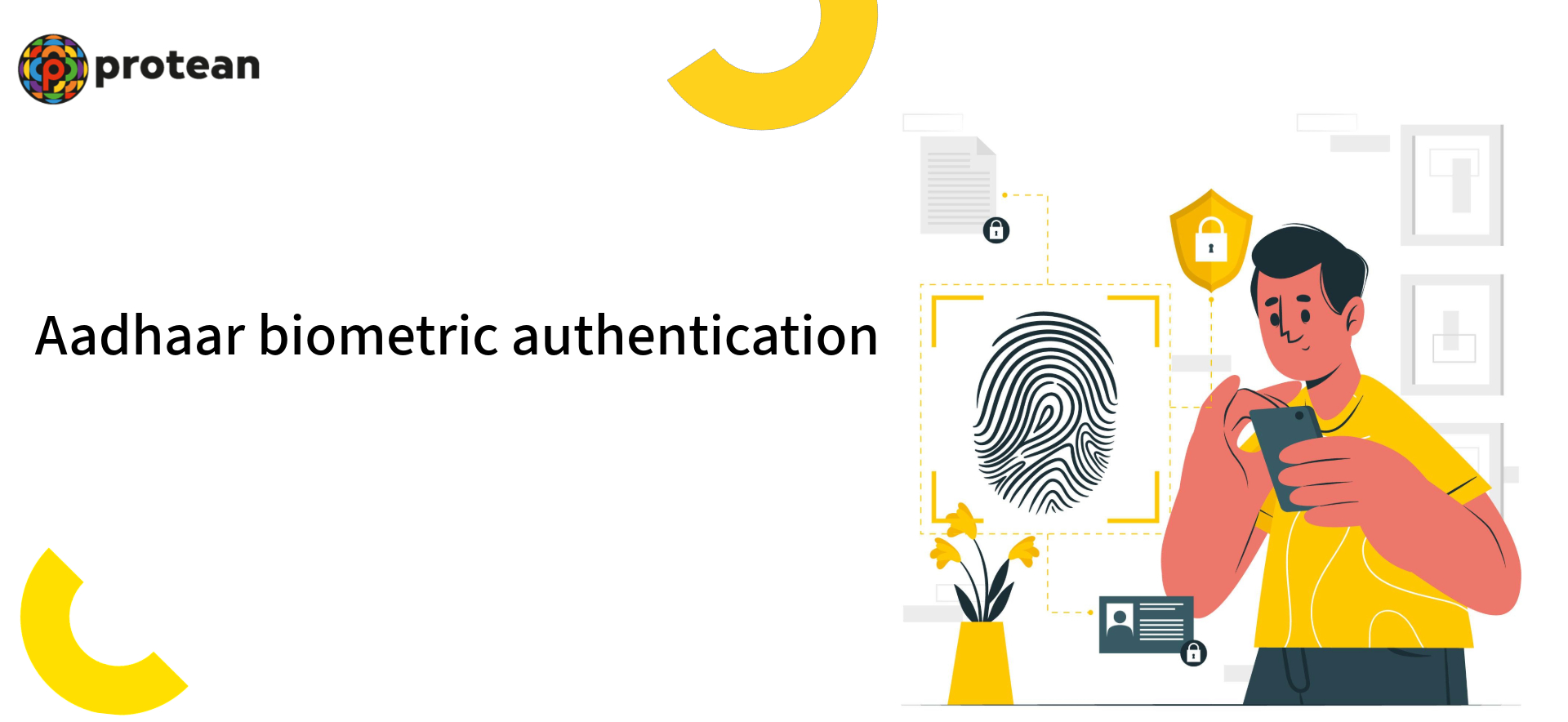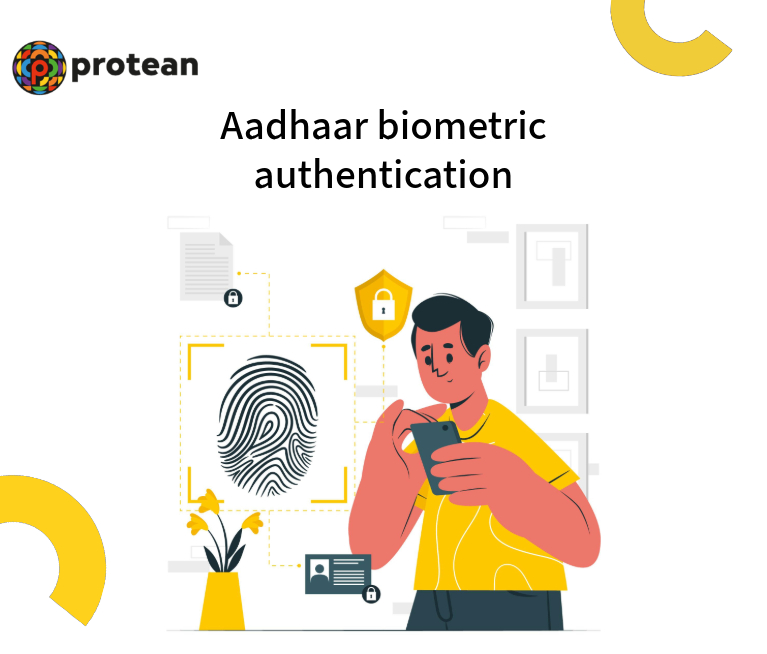Can biometric authentication happen through Aadhaar authentication?
Yes, Aadhaar has emerged as the cornerstone of identity in India.
Over 1.41 billion Aadhaar enrollments underscore its centrality to government services, banking, and digital innovation. With growing cybersecurity threats and the urgent need for real-time identity verification, Aadhaar biometric authentication is transforming how institutions verify and onboard individuals.
Indeed, biometric authentication is rapidly redefining trust in the digital age. As SEBI and RBI tighten KYC norms and digital platforms scale exponentially, biometric identification in India with Aadhaar verification is no longer optional, it is essential.
What is Aadhaar Biometric Authentication?
Aadhaar biometric authentication is a real-time, consent-based verification process using physical features like fingerprints, iris scans, or facial recognition, mapped to a person’s Aadhaar profile.
Aadhaar biometric authentication has the following benefits:
- Eliminates identity theft risks associated with forged documents or leaked OTPs.
- Frictionless onboarding for remote and underserved populations.
Types of Aadhaar Authentication
The following are the types of biometric authentication methods with Aadhaar:
- Fingerprint Aadhaar Verification is the most widely adopted mode, suitable for banking, PDS, and telecom sectors due to its speed and ease.
- Iris Scan Aadhaar Authentication can offer exceptional accuracy. It’s suitable for environments requiring high precision, such as old-age pension verifications and healthcare diagnostics.
- Aadhaar Face Authentication, rolled out in 2022. This is a contactless method. It can be better for remote workforces and gig economy platforms.
- Voice Recognition works well for visually impaired users.
- Digital Signatures (Biometric-Based) with Aadhaar-enabled eSignPro can help digitally sign documents with biometric validation. It streamlines eMandates, contracts, and form submissions.
Multimodal Biometrics India
Multimodal authentication is a combination of these two:
- Fingerprint
- Iris
This approach can enhance accuracy, reduce false positives/negatives (e.g., worn fingerprints).
It is used in high-value transactions, cross-border immigration checks, and regulatory onboarding (like CKYC). These multimodal systems are recommended by UIDAI for better inclusivity and security, particularly in rural and high-volume use cases.

Risks & Challenges in Aadhaar Biometric Authentication
Biometric authentication comes with the following concerns:
- Data Breaches and Privacy Risks
Risks can remain if systems are not compliant. - False Positives/ Negatives
Poor quality scans or damaged biometric traits can result in denial of service or duplicate records. - Rural Infrastructure Gaps
Low internet penetration or faulty biometric sensors can hinder adoption in remote areas. - Legal and Ethical Concerns
Misuse of biometric data without proper consent is a concern. The Digital Personal Data Protection Act, 2023 has mandated strict guidelines on usage, consent, and storage. - Regulatory Safeguards
UIDAI mandates include multi-layer encryption, consent recording, limited authentication response (yes/no), and real-time UIDAI audit logs.

Combating Deepfakes with Biometrics
Biometric systems are evolving with AI-powered anti-spoofing embedded with the following:
- Liveness Detection
- Behavioral Biometrics + Multimodal Checks
- AI/ML Anti-Spoofing Engines
- Continuous Authentication
Conclusion: The Future of Aadhaar-Based Biometric Authentication
Aadhaar authentication is the new default for secure, seamless, and scalable digital identity in India. With increased government push, regulatory clarity, and enterprise adoption, it is set to anchor India's digital trust infrastructure in 2025 and beyond.
Protean eGov Technologies, as a licensed AUA/KUA, provides Aadhaar Authentication APIs, especially biometric APIs, that are built for scale, privacy, and performance.

